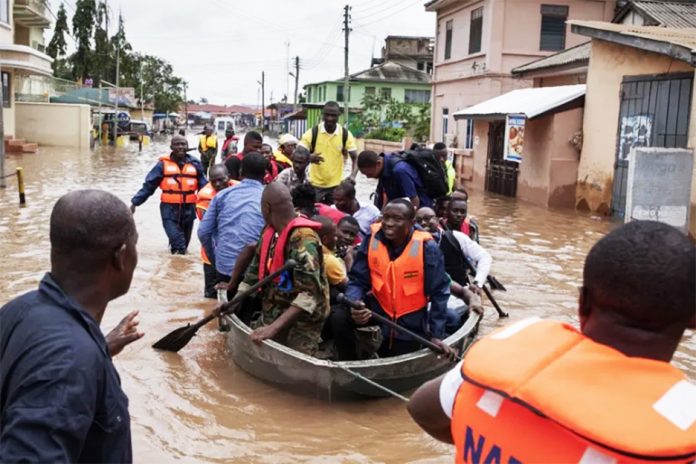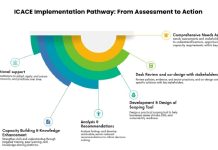A harrowing video clip of an entire roof of a building in Accra, Ghana, ripped off by winds, went viral yesterday. It caused damage to property and could have snuffed out the lives of many. There were many more signs of our collective unpreparedness, for a very predictable annual occurrence.
All this occurred because of less than three hours of highly predictable rainfall. There is much more of such rain to come, many more of such videos will then follow.
I know, because every May, for the last few decades, this happens in Accra. The rains hammer us; a hopelessly unprepared city experiences life disrupting floods. The elites yell, circulate videos of destruction, and wade through water; as though they are Venetians. Except Venice has boats and pagodas, Accra elites wade with their feet and submerged cars. Screaming in panic and desperation.
In another system, the designers and design of such damaged buildings would be made available to the regulator. Whoever signed that building conditions had conformed to approved designs, would also have questions to answer.
Then extracted learning would be summarised and shared with the populace. This is after all a public safety matter.
In Ghana, chances are that come July, the rains stop, and only a tiny minority continue to discuss all these. The majority just move on, until the rains are back in 2025, with more devastation.
For example, given the devastation of last year in North Tongu constituency, should our media not be out there now, asking the Volta River Authority (VRA) what the water levels in the dam are? Regularly monitoring and asking how any arising risks will be managed? Climate change is real, it is unforgiving of those who disregard science in society, to rely on superstition.
Or is it enough, if there is another episode of drowning in a community, to nonchalantly say, “there was nothing else we could have done?”
Then high profile visits of politicians, on both material sides of the divide will follow, loaded with a few relief items. They assemble, like a wild procession of smiling locusts, for photo ops. An inter-ministerial committee may be formed, to review the report of the first – assuming that report will then have been available to the public. And that is it, thirty-six thousand peasants are forgotten?
In the meantime, thousands of our compatriots lives would be ruined.
Yesterday, innocent people were caught in the damage; lives, limbs and property at risk. With no way out, as though it had rained for a week, not part of a day.
And as though we are children of a lesser god? The Netherlands was salvaged from the sea. It does not flood so cyclically, predictably and regularly – on an annual basis. The Dutch also must manage climate change, not just us.
Are we the children of a lesser god? What explains this indifference to planning and seriousness?
May I plead that media attention goes to our compatriots who live in, or by, the water pathways. Though we treated them, in the recent past, like “invisible women and men,” they are not children of a lesser god. We all must care and be concerned that their lives are not ruined this way.
There is an equally urgent job for all professionals of the built environment to do. Keep awareness of what needs to be done up. Keep the discussion pressure on all year. Do not just become “forwarders” of videos showing destruction by floods, after the fact.
We are certainly capable of planning for rain, before the rains come. We too are human.
By Yaw Nsarkoh
Source: myjoyonline.com
The views expressed in this article are the author’s own and do not necessarily reflect The Chronicle’s stance.









